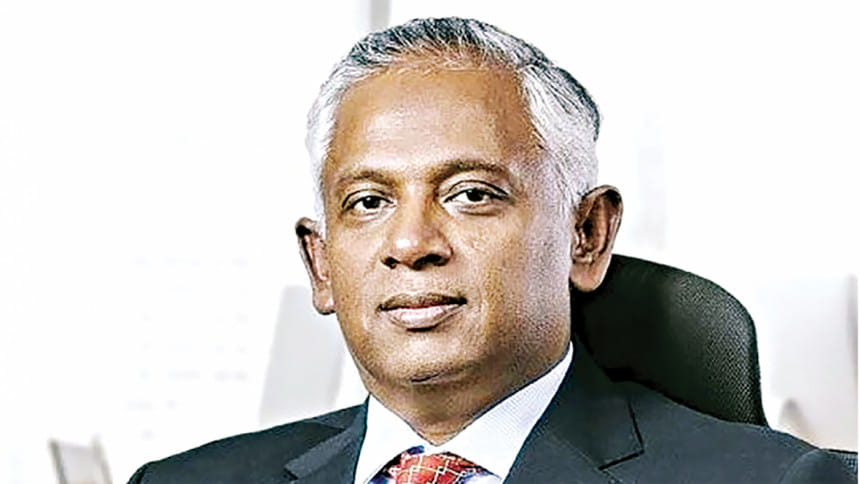Accountants and accountability

South Asia relies heavily on professional accountants for governance, financial transparency, and regulatory compliance and yet the availability of these experts is scarce. Countries like India have over 400,000 professional accountants, followed by Pakistan with approximately 50,000, and Sri Lanka with around 20,000. In stark contrast, Bangladesh has only 3,500 to 4,000 unique professionals across all certifications, including CAs, and CMAs. This shortfall raises serious concerns about the country's capacity to support its growing economy effectively.
In Bangladesh, two primary bodies represent the accounting profession: the Institute of Chartered Accountants of Bangladesh (ICAB) and the Institute of Cost and Management Accountants of Bangladesh (ICMAB). ICAB primarily focuses on statutory audits supported by over 500 practising members. ICMAB has a notable representation in managerial positions, with approximately 100 general managers/CEOs and 300 CFOs. However, their combined contribution still falls far short of the demands of the country's SME-driven economy, which includes 7.9 million entities. This shortage highlights the limited capacity of the profession to serve businesses, ensure compliance, and maintain financial transparency.
The scarcity of these professionals in Bangladesh may be attributed to several factors. One common issue is the frequent disputes between ICAB and ICMAB over practising rights, hindering the profession's overall development. Additionally, there are limited institutions and training facilities to meet the rising demand for skilled professionals. The rapid economic expansion further exacerbates this gap as growth outpaces the availability of qualified accountants.
A related issue is the independence and accountability of Chief Financial Officers (CFOs). While auditors face stringent regulations under the Financial Reporting Council (FRC) and Bangladesh Securities and Exchange Commission (BSEC), CFOs remain vulnerable to board-level pressures. Many CFOs are unable to challenge unfair practices for fear of losing their jobs. Protecting CFOs through reforms, such as joint appointments by companies and FRC and requiring FRC consent for termination or transfer, could strengthen their position and ensure greater fairness in financial reporting.
One significant concern is the absence of mandatory cost audits for large organisations. This gap allows for financial manipulation, particularly in critical sectors, where accurate cost calculations are essential. Introducing mandatory cost audits would enhance transparency, ensure pricing accuracy, and improve tax compliance, thereby strengthening economic governance.
Cost and Management Accountants (CMAs), with their specialised knowledge of cost structures and operational efficiency, should be given prominence in conducting cost audits and other certification forms. This alignment of expertise with responsibilities would optimise audit quality and ensure a more balanced and effective financial oversight system.
The focus could be prioritising statutory audits by CA for Public Interest Entities (PIEs) only considering the scarcity of resources, ensuring that organisations with significant public impact adhere to rigorous financial scrutiny. Accounting and certifications by CMAs should suffice for tax, accounts and other audit purposes. Transparent financial reporting is crucial for effective revenue collection, complemented by a dual-audit system for large entities to enhance accountability. Revolutionary reforms in accounting and auditing practices are essential to combat malpractice, optimise resources, and build a more robust financial oversight framework.
Some company leaders may resist on the grounds of costs, but the increase is minimal compared to overall expenses, making it a worthwhile investment for improved governance, accountability, and sustainability.
Bangladesh's accounting bodies must collaborate with the commerce ministry and other stakeholders to address these challenges and create a unified strategy. A rational segmentation of the scope of the statutory audit could allow CMAs to focus on SMEs with revenues below Tk 5 crore or non-PIEs. This division would improve resource efficiency and selective audit coverage.
Collaborative reforms, greater independence for CFOs, and mandatory cost audits are essential steps to address the critical shortage of professional accountants.
The author is president of the Institute of Cost and Management Accountants of Bangladesh and founder of BuildCon Consultancies Ltd

 For all latest news, follow The Daily Star's Google News channel.
For all latest news, follow The Daily Star's Google News channel. 



Comments